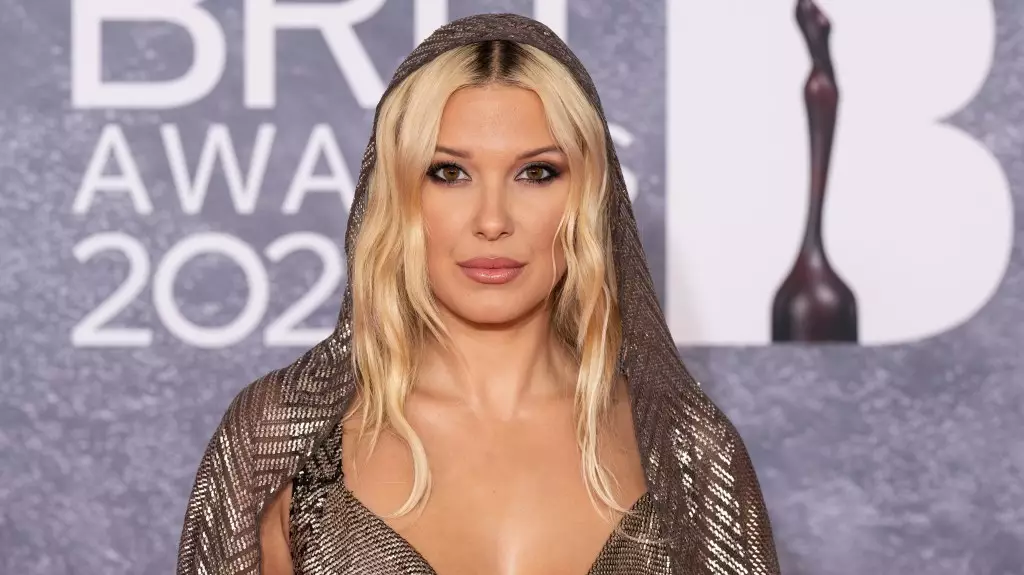In an era where the female experience is often marred by societal expectations and media judgment, Millie Bobby Brown’s recent Instagram announcement has sparked meaningful conversations about the treatment of young women in the public eye. The young actress, known for her role in Netflix’s “Stranger Things,” publicly criticized the media for its invasive scrutiny regarding her appearance, expressing a sentiment shared by many who feel the unrelenting pressure to conform to established beauty standards. By taking ownership of her narrative, Brown not only confronts her critics but also sheds light on a broader issue affecting countless young women navigating a world that often prioritizes appearance over authentic growth.
Brown’s emergence into the fame spotlight at such a tender age—just ten years old—has undoubtedly shaped her perspective. Growing up in front of an audience has its unique challenges, especially when that audience is simultaneously judging every transformation. The media’s obsession with dissecting her appearance has spiraled into absurdity, with headlines that question everything from her aging process to mocking her for supposed “mommy makeovers.” This sort of critique not only reduces a multifaceted individual to mere aesthetics but also perpetuates an unhealthy culture that fixates on physical flaws rather than personal accomplishments.
Millie’s outrage becomes a clarion call, highlighting the troubling intersection of feminism and celebrity culture. Women, especially young women in the public eye, often find themselves victims of a relentless narrative that forces them to adhere to unattainable ideals. What is shocking, Brown notes, is not merely the existence of this scrutiny but the alarming fact that it is largely perpetuated by other women. The concept of female empowerment does not seem to manifest in a supportive network but instead reveals deep-seated insecurities that lead to tearing one another down rather than building each other up.
A Vicious Cycle of Criticism
Brown articulates her dissatisfaction powerfully, declaring that the conversations around her image are synonymous with bullying rather than journalism. The very essence of critique becomes a weapon wielded by those who thrive on sensationalism and clickbait—fueling a cycle where negativity triumphs over positivity. It is disheartening to consider that in an age where advocacy for women’s rights and mental health should be at the forefront of discussions, the media often resorts to superficial commentary that lacks depth and empathy.
Her call to action resonates deeply: Why is it easier to criticize than to uplift? This question is not just aimed at her critics but serves as a larger societal inquiry. When did society normalize body shaming and belittling young women for their evolution? The answer may lie in the collective discomfort with the reality of women growing into their identities—a reminder of the transformations we all undergo yet struggle to accept in others.
As Millie Bobby Brown navigates the complexities of emerging adulthood against a backdrop of online scrutiny, her declaration resonates as both a personal mantra and a broader movement. The challenge is not just for her to claim her space and identity without apology—but for every young woman to also embrace her journey unapologetically. As social media continues to intertwine with real-life experiences, it becomes increasingly vital for young women to find their voice amid a sea of unsolicited opinions.
Millie’s passionate assertion serves as a compelling reminder that every young woman deserves to blossom free from the guillotine of public criticism. Furthermore, it compels us to reconceptualize empowerment—not simply as a buzzword but as actionable support manifested through kindness rather than critique. The potential ripple effects of embracing this mindset could transform how young women perceive themselves and one another, ultimately creating a culture rooted in positivity.
As the narrative unfolds, Millie Bobby Brown’s courageous stand against media derision invites us to rethink our collective responsibility. It challenges all of us—not just to be passive observers but active participants in shaping a world where beauty is celebrated, and individuality is embraced. The dialogue she has initiated may just be the catalyst needed for a new wave of empowerment and acceptance for generations of women to come.
